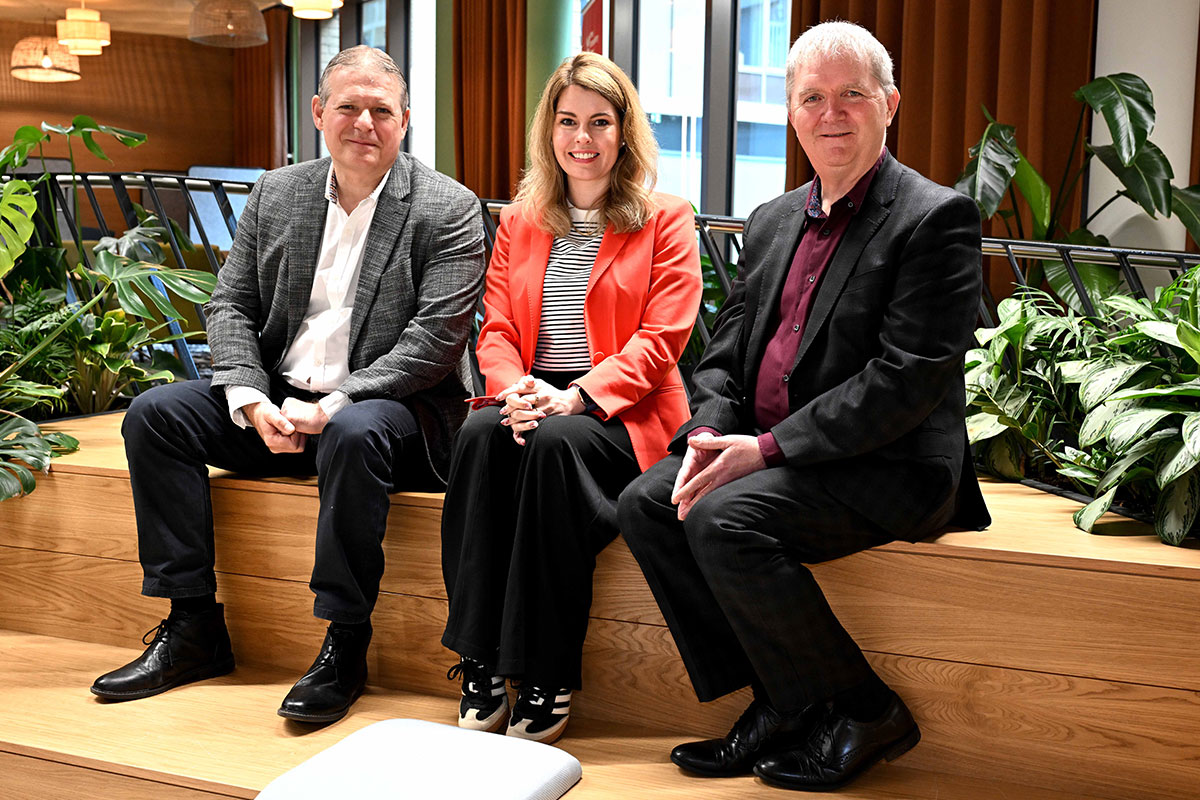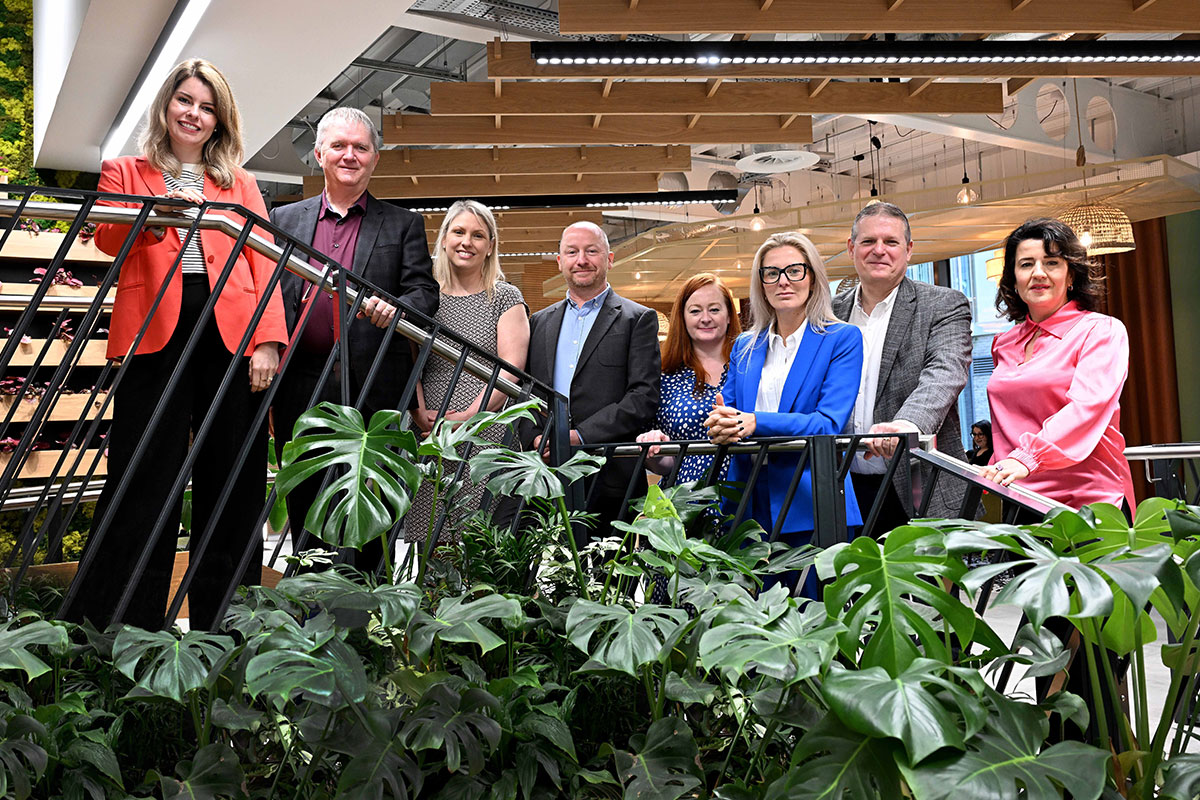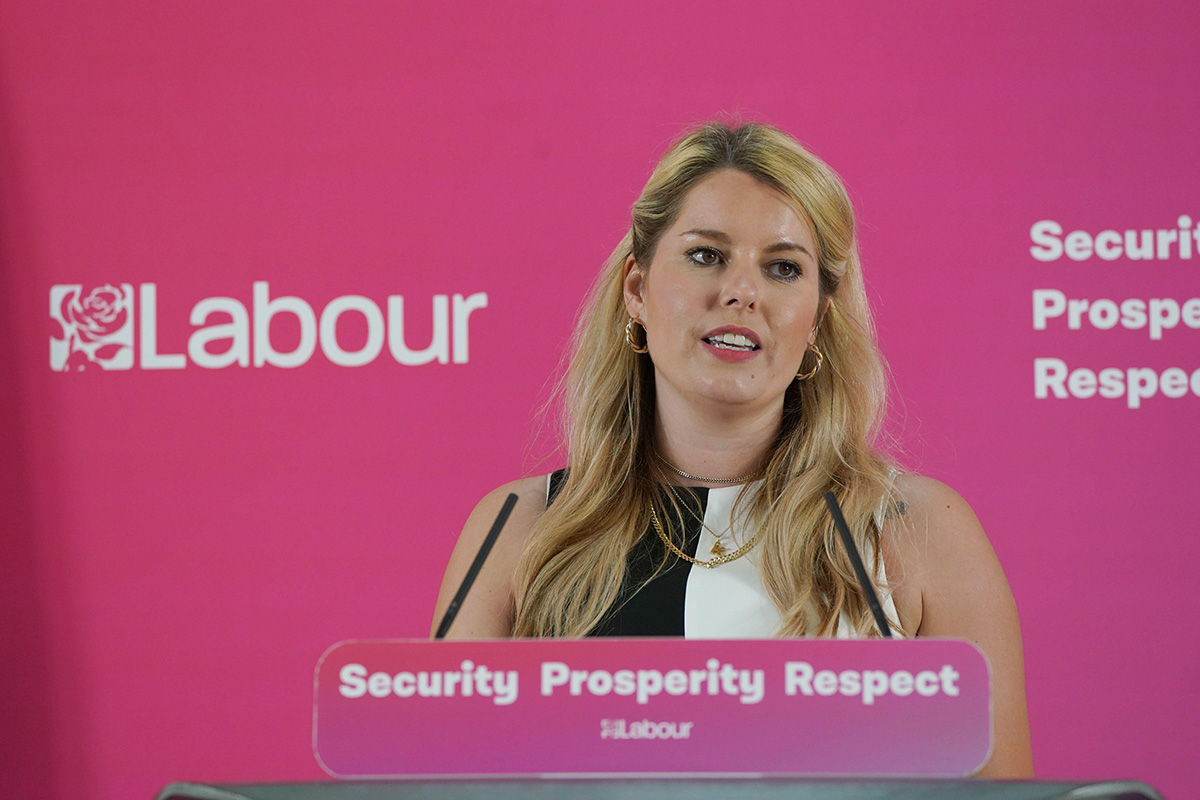You are viewing 1 of your 1 free articles
North East social landlords make the most of devolution
The world changed for social landlords in the North East in May with the arrival of devolution and an elected mayor. Martin Hilditch finds out how the region’s housing providers have been collaborating to take advantage. Photography by Barry Pells
![]()
Devolution has landed in the North East of England. Behind the scenes, the region’s social landlords have been preparing for the big moment.
At the beginning of May, Kim McGuinness was elected the first mayor of the North East, polling almost 60,000 more votes than her nearest rival. She was well known, having previously been a councillor for Newcastle and a police and crime commissioner. Now she will lead the region’s new combined authority, covering seven local authority areas.
Six months prior to this, the region’s housing associations, councils and ALMOs started to fully gear up for change. In November, 17 social landlords from across the region – which collectively own and manage more than 214,000 homes – announced that they were forming a new North East Housing Partnership.
Their aim was simple. The partnership’s chair, Paul Fiddaman, chief executive of 32,000-home Karbon Homes, explains that the arrival of the combined authority was a catalyst for landlords to “start thinking about how we could collaborate more effectively across a broader range of topics and themes for the region”.
More affordable homes
Inside Housing meets with members of the partnership in the offices of Home Group. Outside, the towering terraces of Newcastle’s St James’ Park football stadium loom over us. This might be a different theatre of dreams, but the fact that we are talking just days after Ms McGuinness’ election shows how focused the partnership is on turning its vision into reality.
The story to date is that the partnership has pledged to work on four key themes:
● Regeneration, development and placemaking
● Net zero and sustainability
● Employability and social inclusion
● Health, care and homelessness
It only takes a quick glance to spot the strong echoes of Ms McGuinness’ stated aims on becoming North East mayor, which include creating a “green jobs revolution”, ending child poverty and delivering economic growth.
Her manifesto states: “As far as I’m concerned, housing targets are intrinsically linked to our skills and job creation plans.”
Those are the goals. But with the election over, now is the moment of truth. What is the North East Housing Partnership promising to do, and what does it want in return? And, given that Inside Housing has just launched its Housing Hires campaign, which pledges to promote the sector as a place to work, we want to take a detailed look at its employability offer, too.
We start, though, with regeneration, development and placemaking. In its prospectus, which sets out the partnership’s offer to the mayor (including how social landlords could go “further and faster” with additional support), the group pledges to deliver “at least” 6,500 affordable homes across the region over the mayoral term. “We believe there is scope to increase this target given the right support,” it says. That is something Ms McGuinness wants to see, too. When Inside Housing speaks to the mayor, she says that 6,500 homes is “a really good number, but I think we can do better”.
It is a great aspiration – but what could turn it into a reality? Well, for starters the combined authority and the partnership will be working with the government’s housing and regeneration agency Homes England, on a strategic plan to deliver the region’s placemaking, development and regeneration ambitions. An explicit prioritisation within that on the region’s affordable housing needs would be a good first step in upping those numbers, the partners believe. But they – and the mayor – want more, too. Specifically, that means more influence over the allocation of Homes England resources, in the manner of the Greater Manchester Combined Authority (the GMCA’s 2023 “trailblazer” devolution deal means it will set the strategic direction for the Affordable Homes Programme in its region and acquire a growing role in operational decisions, such as site selection and provider choice).
Anyone who has spoken to social landlords across the North of England in recent years will know there has been considerable frustration about how much funding it has been possible to squeeze out of Homes England, particularly for regeneration schemes. Although the agency has changed its rules and focus in recent times to enable more regeneration schemes to get off the ground, there is still a feeling that funding could be better aligned to local priorities and need across the North East, rather than simply funding individual landlords’ plans.
“With greater co-ordination of the available funding regionally, we can tailor that funding to deliver against regional priorities,” Mr Fiddaman says. “I think that’s really important because, clearly, the combined authority has come into being with a clear set of objectives around economic growth. And if you don’t provide the affordable housing for people to live in to drive economic growth, you’re not going to achieve that objective.”
There are also steps that government could take more immediately to help with delivery, says the partnership’s vice-chair John Johnston, chief executive of Bernicia Homes. The current 2021-26 Affordable Homes Programme (AHP) is due to finish in just a couple of years’ time, with no news yet on any extensions or its replacement.
“If we don’t start to extend that programme now – you’re talking about development schemes that could take two years from inception to actually being on site – all the progress we’ve made in terms of increasing the units could start to slow down,” Mr Johnston argues. “We are all lobbying hard at the moment about trying to get an extension to that programme.”
It is perhaps the partnership’s vision of delivering the region’s net zero and sustainability goals through collective procurement and joint investment in innovation and green skills that is the most eye-catching feature of its prospectus. It is a reminder that the partnership’s work was not just drawing up a wish list for government and the combined authority – this is a group that is planning to adapt its own behaviour, too.
“We need to move to the next stage and start working on collaborative delivery,” Mr Fiddaman says. “Why is that important? Well, if we can scale up our programmes, we can go to the supply chain with certainty and clarity about what is coming their way. That will enable them to have the confidence to invest in innovation, technology and, particularly relevant, the skills agenda. If they have a credible forward programme of activity, they can talk to the further education sector and make sure the skills are coming online, so we’ve got access to the people who would actually deliver for us as well.”
The fact landlords are currently having to procure outside the region for things like heat pumps is “nonsensical”, he adds.
“We’ve got to maximise the economic impact on this region of that activity,” he says. “We need to be smarter, we need to be creating our own capacities. There are lots of exciting opportunities.”

Some of the big questions for landlords in the region are whether they can “pool our respective programmes, aggregate that up and give certainty to the supply chain”, in turn driving down costs.
This all sounds good, but how close is this really to becoming a reality? “I think we’re at a point now where half a dozen members of the partnership are ready to go and are ready to commit to a collaborative procurement exercise,” Mr Fiddaman says. “There’s already a commitment to bid collaboratively for Wave 3 [of the Social Housing Decarbonisation Fund]. But if we get that [funding] and we get some certainty around future funding coming in, then I think you’ll see people willing to collaborate around delivery as well.”
Employment and skills
All of which leads us nicely into the partnership’s pledges around employability and social inclusion, as well as Inside Housing’s new Housing Hires campaign.
As a reminder, among other things, the campaign pledges to share best practice and ideas about how to best recruit and retain staff in social housing, but also to identify skills gaps and future skills needs in parts of the sector.
And today, the North East Housing Partnership agrees to back the campaign, making the North East the first region to throw its support behind Housing Hires.
The partnership is promising to deliver skills training to match needs identified through the region’s Local Skills Improvement Plan, including in the green sector, care and construction. It wants to create “a culture of collaboration” with partners such as the combined authority and local councils and employers.
That collaboration is already under way between a number of landlords in the North East that have formed the Housing Employment Network North East (HENNE), which aims to support residents and tenants to overcome barriers to employment, develop skills and, crucially, provide employment opportunities.
Steve Mckinlay, chief executive of Tyne Housing, who is the partnership’s lead on employability and social inclusion, says that the partners are looking to work to identify skills gaps in the region – in everything from retrofit schemes to painting and decorating.
“What I’d really like to see us do is create a model that helps the combined authority and local authorities see us as part of their inward investment offer to organisations who are going to come to the area, because we’ve got that bespoke, joined-up approach to employment and skills.”
The creation of those opportunities will also have an impact on the partnership’s fourth priority area: health, care and homelessness. Collaboration is again the key word here, with the partners pledging to work with the regional Integrated Care Board (ICB) to drive forward the integration of housing into health and care strategies across the region and develop a North East health, care and homelessness work programme to feed into the board’s thinking. The partnership is also promising to co-produce a Housing First model that best meets regional needs. In terms of its asks, it wants to work with the combined authority to better align capital and revenue funding for care, health and homelessness by working together to co-create joint regional bids for future funding.
Nik Turner, executive director of communities and customer services at Believe Housing, is the partnership’s lead on health, care and homelessness. She says that the partnership is already feeding into work the ICB is carrying out with relation to need and demand for services for older people and people with complex needs, and warm and dry homes.
“What it [the ICB’s work] doesn’t cover as things stand is homelessness,” she says. “So, there’s a little bit of taking stock of that piece of work, bringing things together and looking at further phases of it. But the ICB is carrying out a full needs assessment of everything [the region] needs in terms of specialists.”
The housing sector in the North East is at the start of a new and potentially transformative journey. It is clear there is a coalition of providers that have unity of purpose and vision and a strong offer for the new combined authority. If they succeed, they will not just be providing the homes needed for the future – but they will be helping reset the region’s skills and employment offer, too. They are ready to go, but with political backing they could go much further and faster.
Recent longform articles by Martin Hilditch
As Inside Housing celebrates its 40th anniversary, we want to identify and build the profile of the outstanding individuals who will shape the housing sector over the next 40 years. Editor Martin Hilditch sets out the ambitions of the publication’s new 40 Under 40 list
Could adjustable housing be the big idea that helps the UK thrive in the 21st century?
Late last year, Dr Philip Graham won the Thinkhouse Early Career Researcher’s Prize for his paper arguing that adjustable housing could be the answer to some of the UK’s housing problems. Martin Hilditch met him to find out why
G15 chair Fiona Fletcher-Smith: ‘If I was in the police, I would be very worried about social unrest linked to housing’
Fiona Fletcher-Smith has serious concerns about where the housing crisis is going unless the government changes its approach. With an election approaching, she talks to Martin Hilditch about how the G15 will lobby the main parties – and why the G15’s days as a brand are numbered
Sign up for our development and finance newsletter
Already have an account? Click here to manage your newsletters












